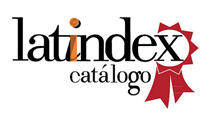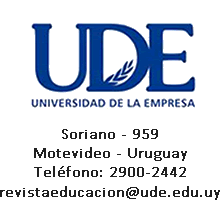Uso de realidade aumentada no ensino de geometria espacial no ensino fundamental
DOI:
https://doi.org/10.47966/avan-inv.2024.11144-61Palavras-chave:
geometria, matemática, ensino fundamental, realidade aumentadaResumo
O objetivo do presente trabalho é, através de uma revisão da literatura, identificar práticas inovadoras no ensino de geometria no ensino fundamental, destacando experiências que incorporaram metodologias ativas. Os resultados destacam a relevância da integração de tecnologias digitais na exploração de conceitos geométricos espaciais, principalmente a utilização de aplicativos que trabalham com a realidade aumentada e assim facilitam a compreensão dos conceitos tridimensionais. Além disso, evidenciam a eficácia de abordagens práticas para compreender áreas e formas geométricas. Contudo, os dados revelam desafios enfrentados por professores na utilização de Tecnologias Digitais de Informação e Comunicação (TDIC) em sala de aula devido à falta de capacitação. Na discussão, enfatiza-se a importância de capacitar professores para o uso efetivo de Tecnologias Digitais da Informação e Comunicação, destacando a necessidade de investimentos em formação e infraestrutura. Além disso, destaca-se a positiva receptividade dos alunos a metodologias inovadoras, evidenciando maior interesse e participação durante atividades que incorporam tecnologia. Sendo assim, este estudo ressalta a necessidade premente de repensar abordagens tradicionais no ensino de geometria, incorporando metodologias ativas e recursos tecnológicos. A capacitação docente e a conscientização sobre o potencial educacional das inovações são cruciais para promover uma educação mais alinhada às demandas contemporâneas, preparando os alunos de maneira mais efetiva para os desafios do século XXI.
Referências
Brasil. Ministério da Educação. Base Nacional Comum Curricular. Brasília: MEC, 2018. Disponível em: http://basenacionalcomum.mec.gov.br/
Barros, Janilson Silva de; ANDRADE, Alexandra Nascimento de; NEGRÃO, Felipe da Costa; GONÇALVES, Carolina Brandão. Geometria plana com GeoGebra: intervenção pedagógica com alunos do Ensino Fundamental II. REnCiMa: Revista de Ensino de Ciências e Matemática. São Paulo, v. 12, n. 4, p. 1-19, jul./set. 2021 https://doi.org/10.26843/rencima.v12n4a11
Guerra, Avaetê de Lunetta e Rodrigues; RIBEIRO, Gilson Alves; SOUSA, Maria Aparecida de Moura Amorim; DIAS, Eliane Carvalho Vidal. Inovação e matemática: como as tecnologias estão revolucionando o ensino. Revista Ibero-Americana de Humanidades, Ciências e Educação. São Paulo, v.9.n.08. ago. 2023. https://doi.org/10.51891/rease.v9i8.11127
Guterres, Pedro Elias Pinto; JESUS, Gabriel Francisco Roque de; WIERSINSKI, João Henrique Sandri; GOMES, Jussane; CIOTTI, Natália Schock; LUZ, Wedsley Juan dos Santos. Projeto residencial como tema estruturador do ensino da Geometria Aplicada e Matemática da Inovação. 1ª Mostra de Extensão Unijuí – 27 de Outubro de 2023. Disponível em:
https://www.publicacoeseventos.unijui.edu.br/index.php/moeducitec/article/view/23939/22573
Moreira, Gabriel Abreu. As potencialidades do software geogebra no ensino dos sólidos geométricos prisma e pirâmide. Cachoeiro de Itapemirim: Monografia apresentada ao Instituto Federal do Espírito Santo. 2022. Disponível em: https://repositorio.ifes.edu.br/bitstream/handle/123456789/2414/TCF_%20Moreira.pdf?sequence=1&isAllowed=y
Oliveira, Luana Fernandes de. A contribuição de metodologias inovadoras para a construção do conhecimento matemático do educando nos anos iniciais do ensino fundamental. Revista Velho Chico, Bom Jesus da Lapa (BA), v. 01, n. 01, p. 72-87 Abr/2021.Disponível em:
http://tvc.lapa.ifbaiano.edu.br/ojs/index.php/rvc/article/view/34
Oliveira, Mateus Souza de; SILVA, Maria Deusa Ferreira da. A formação com tecnologia digital: potencializando a aprendizagem geométrica. Boletim de conjuntura (BOCA) ano V, vol. 15, n. 45, Boa Vista, 2023. https://doi.org/10.5281/zenodo.8330064
Oliveira, Sergiano Guerra de. As inovações tecnológicas na educação matemática e suas concepções. REnCiMa, v. 11, n.3, p. 126-140, 2020. https://doi.org/10.26843/rencima.v11i3.1343
Palhano, Maicon G. O.; OLIVEIRA, Fabiane de; GROSSI, Luciane. A realidade aumentada no ensino de sólidos geométricos. VIII Congresso Brasileiro de Informática na Educação (CBIE 2019) e Anais do XXX Simpósio Brasileiro de Informática na Educação (SBIE 2019). 2019.
https://doi.org/10.5753/cbie.sbie.2019.1012
Pereira, Matheus da Cruz. Impactos da realidade aumentada no processo de aprendizagem de geometria espacial no ensino fundamental. Pau dos Ferros: Trabalho apresentado a Universidade Federal Rural do Semiárido. 2023. Disponível em: https://repositorio.ufersa.edu.br/server/api/core/bitstreams/d7ffa6ba-aa2a-4bda-b910-3595a63e7d06/content
Santos, Rosildo Barbosa dos. Geogebra como ferramenta de ensino para geometria analítica. Coari: Trabalho de conclusão de Curso apresentado ao Instituto de Saúde e Biotecnologia da Universidade Federal do Amazonas. 2021. Disponível em:
https://riu.ufam.edu.br/bitstream/prefix/6025/2/TCC_RosildoSantos.pdf
Arquivos adicionais
Publicado
Edição
Seção
Licença
Copyright (c) 2024 Evelin Lima Albuquerque

Este trabalho está licenciado sob uma licença Creative Commons Attribution 4.0 International License.
Política para revistas de acceso abierto
Los autores/as que publiquen en esta revista aceptan las siguientes condiciones:
a. Los autores/as conservan los derechos de autor y ceden a la revista el derecho de la primera publicación, con el trabajo registrado con la licencia de atribución de Creative Commons (CC-BY), que permite a terceros utilizar lo publicado siempre que mencionen la autoría del trabajo y a la primera publicación en esta revista.
b. Los autores/as pueden realizar otros acuerdos contractuales independientes y adicionales para la distribución no exclusiva de la versión del artículo publicado en esta revista (p. ej., incluirlo en un repositorio institucional o publicarlo en un libro) siempre que indiquen claramente que el trabajo se publicó por primera vez en esta revista.












 This work is licensed under
This work is licensed under 
